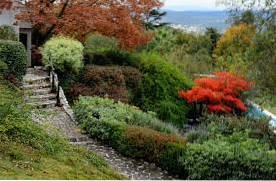Tilling or mowing can be used to greatly reduce populations of this plant on farms or in lawns. Herbicides are typically not necessary, but if you use them, choose those effective against dicots, and apply them before flowers appear. White campion is tolerant to 2, 4-D, but glyphosate is typically effective against it.
- Is White Campion invasive?
- Is White Campion poisonous?
- Is white campion edible?
- What does Campion look like?
Is White Campion invasive?
More Information: While white campion is well controlled in its native range, it's considered to be an invasive plant in the North America.
Is White Campion poisonous?
Although no mention of toxicity has been seen for this species, it does contain saponins. Although toxic, these substances are very poorly absorbed by the body and so tend to pass through without causing harm. They are also broken down by thorough cooking.
Is white campion edible?
Use: The leaves are good as a cooked green (Boil for about 10 minutes). If eaten uncooked, the leaves will taste bitter due to a small and harmless amount of toxin saponin.
What does Campion look like?
The red campion is an attractive, medium to tall perennial or biennial plant with a downy stem. Leaves: hairy, and grow in opposite pairs. Flowers: a distinctive pink-red in colour with five petals that are fused at their base to form a tube surrounded by a purple-brown calyx (protective sheath).
 Planetagarden
Planetagarden



